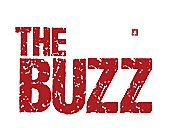
Survey Shows Online Trolls Are Sadists
The results of an online survey have shown that Internet Trolls exhibit higher instances of sadism, a disregard for morality, and exploiting and manipulating others.
The Canadian survey asked a variety of questions about internet behavior, such as how much is time spent online and commenting on sites like YouTube and news sites. Answers were also measured for the psychological “Dark Tetrad”, consisting of narcissism, Machiavellianism (the use of cunning and duplicity to manipulate others), psychopathy, and sadistic personality. From the results article, “Online Trolling” is defined as,
The practice of behaving in a deceptive, destructive, or disruptive manner in a social setting on the Internet with no apparent instrumental purpose.
The study also made the distinction between Trolling and cyber-bullying and online arguments from personal beliefs, noting that Internet Trolls are offensive for the enjoyment of it. According to the article,
Trolls operate as agents of chaos on the Internet, exploiting 'hot-button issues' to make users appear overly emotional or foolish in some manner. If an unfortunate person falls into their trap, trolling intensifies for further, merciless amusement. This is why novice Internet users are routinely admonished, 'Do not feed the trolls!'.
Survey results showed that responders who admitted to enjoying trolling compared to other activities such as making new friends and debating topics also scored consistently higher in the Tetrad and cited the pleasure of trolling as its appeal. Other questions used to gauge that sadistic level of the responders included;
I enjoy physically hurting people.
I enjoy making jokes at the expense of others.
I enjoy playing the villain in games and torturing other characters.
One appeal of online trolling is the inherent anonymity of social networking, the ability to act out online without having to directly face the person, or even doing so without using one’s real name or picture. In an attempt to counter the anonymity of trolling, major networking sites like YouTube and Huffington Post have banned anonymous posting, requiring all posters to register and their actual name being accessible with their posts.
The responders for the survey included 188 Canadian psychology students who received extra credit for their participation, and 609 U.S. participants through a website that allows users to fill out surveys for a small amount of money, fifty cents in the case of this survey.
More From 106.3 The Buzz










